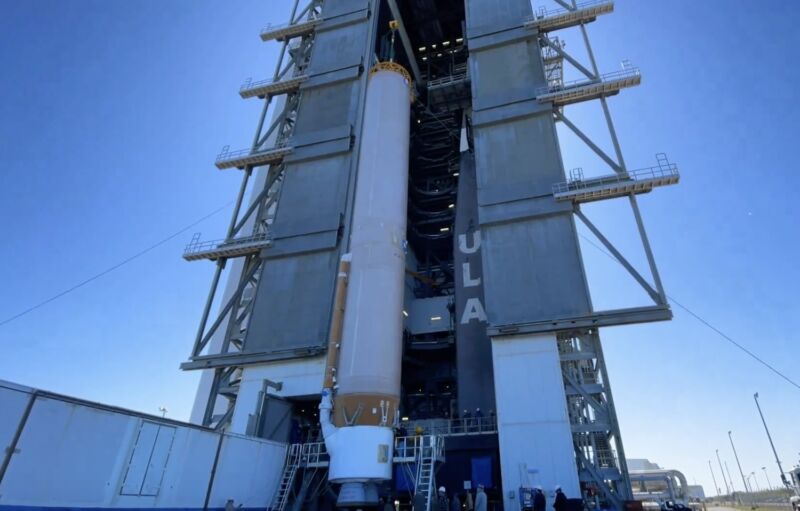Enlarge / The first stage of United Launch Alliance’s Atlas V rocket was lifted onto its launch platform this week in preparation for an April liftoff with two NASA astronauts on Boeing’s Starliner Crew Flight Test. (credit: United Launch Alliance)
Welcome to Edition 6.32 of the Rocket Report! I’m writing the report again this week as Eric Berger is in Washington, DC, to receive a well-earned honor, the 2024 Excellence in Commercial Space Journalism Award from the Commercial Spaceflight Federation. Cape Canaveral is the world’s busiest spaceport, and this week, three leading US launch companies were active there. SpaceX launched another Falcon 9 rocket, and a few miles away, Blue Origin raised a New Glenn rocket on its launch pad for long-awaited ground testing. Nearby, United Launch Alliance began assembling an Atlas V rocket for the first crew launch of Boeing’s Starliner spacecraft in April. 2024 is shaping up to be a truly exciting year for the spaceflight community.
As always, we welcome reader submissions, and if you don’t want to miss an issue, please subscribe using the box below (the form will not appear on AMP-enabled versions of the site). Each report will include information on small-, medium-, and heavy-lift rockets, as well as a quick look ahead at the next three launches on the calendar.
Astroscale inspector satellite launched by Rocket Lab. Astroscale, a well-capitalized Japanese startup, has launched a small satellite to do something that has never been done in space, Ars reports. This new spacecraft, delivered into orbit on February 18 by Rocket Lab, will approach a defunct upper stage from a Japanese H-IIA rocket that has been circling Earth for more than 15 years. Over the next few months, the satellite will try to move within arm’s reach of the rocket, taking pictures and performing complicated maneuvers to move around the bus-size H-IIA upper stage as it moves around the planet at nearly 5 miles per second (7.6 km/s).
Read 26 remaining paragraphs | Comments

